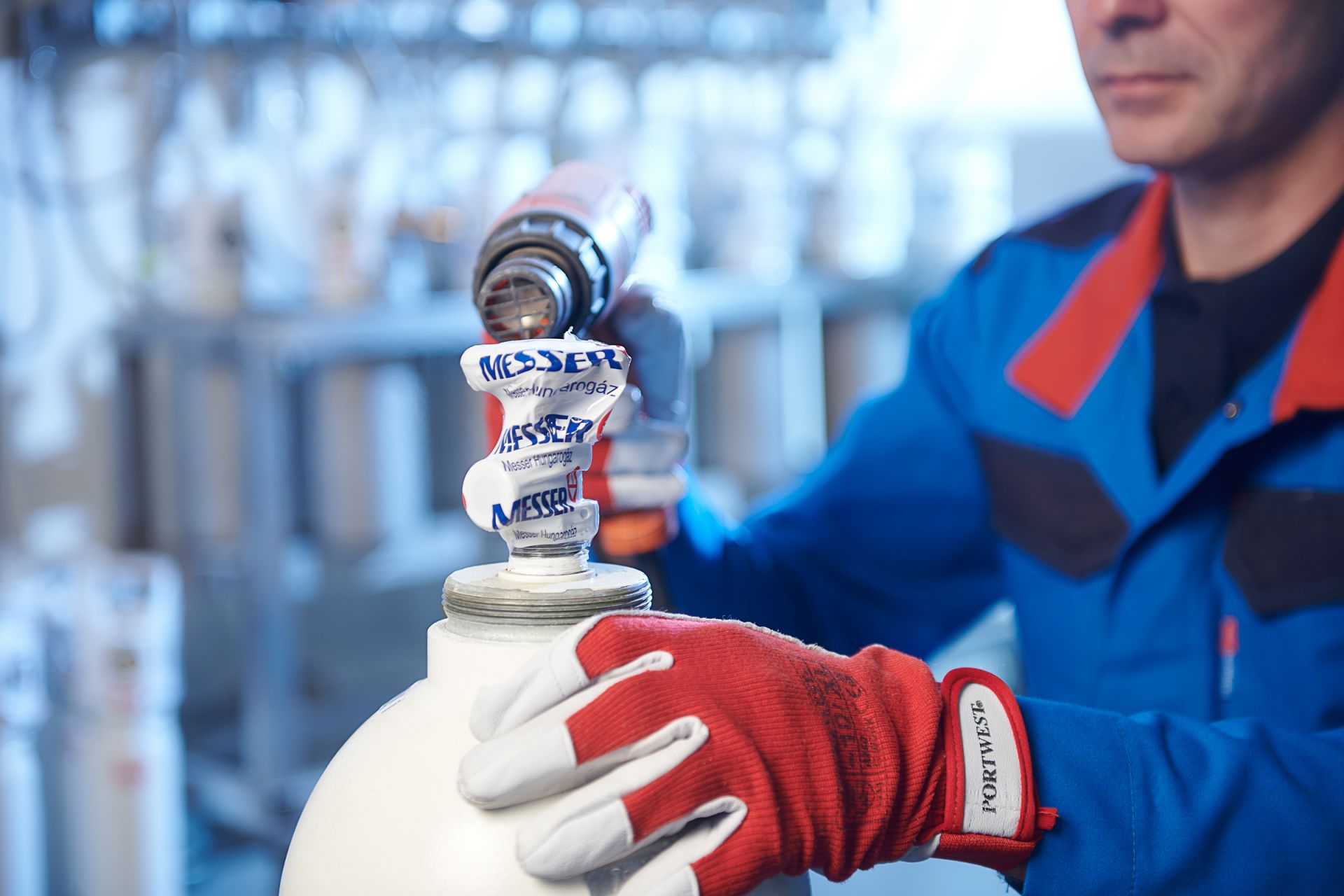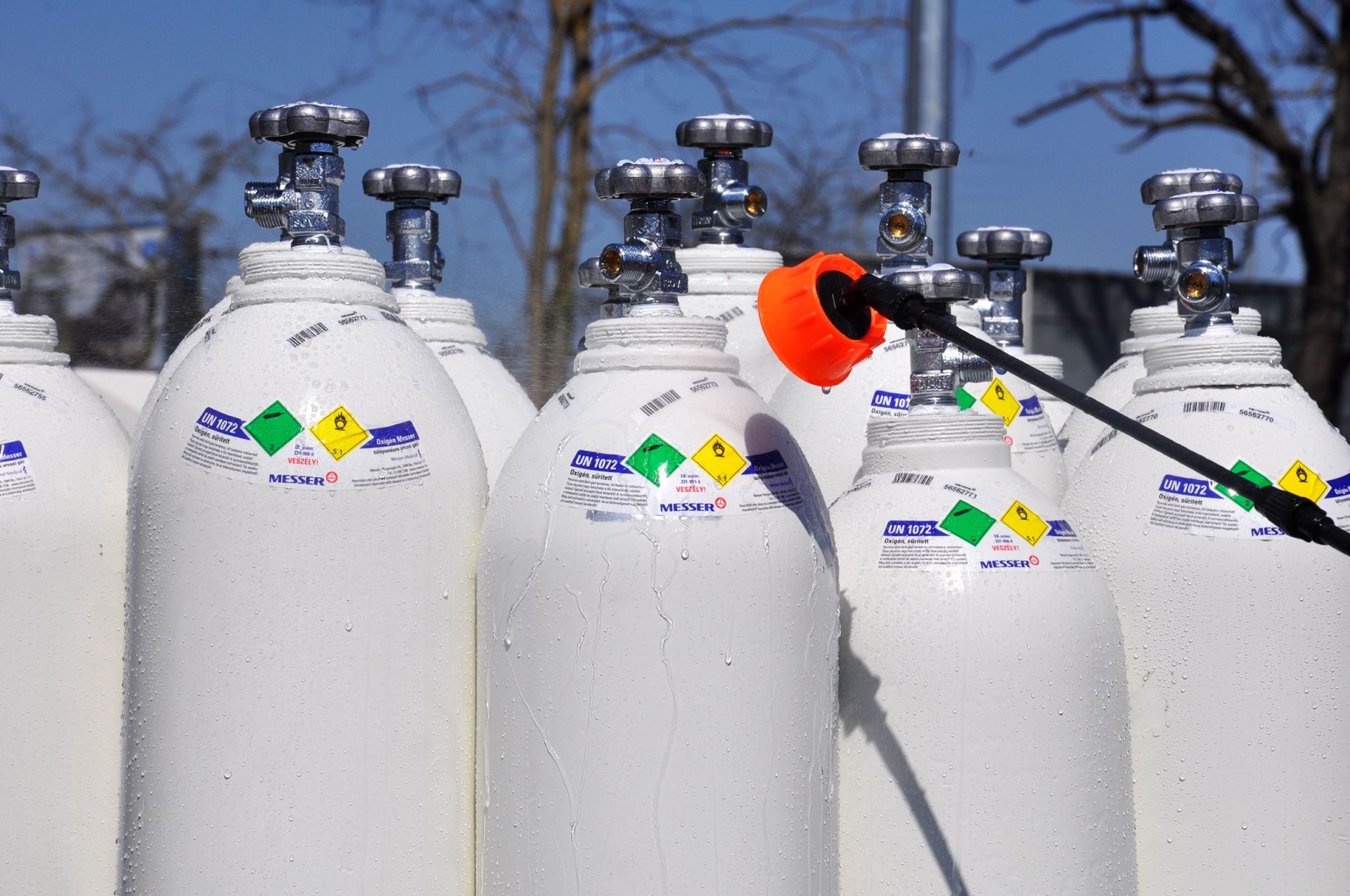
COVER STORY
Coronavirus: Ventilation helps save lives

COVER STORY
Coronavirus: Ventilation helps save lives
By the Editorial Team
Artificial ventilation with medical oxygen can save the life of Covid-19 patients. In many affected countries, Messer reacted quickly and expedited additional supplies of medical oxygen – also for use in field hospitals.
Hospitals receive medical oxygen supplies in liquid form delivered to permanently installed tanks. The gas is vaporized on site, i.e. warmed up in a heat exchanger using heat from ambient air, and transferred directly to intensive care units or operating rooms through piping systems. There it can be administered to patients. Main hospitals in the first countries severely affected by the pandemic, such as China and Italy, and later also Spain and France, experienced a sharp increase in demand for medical oxygen in liquid form. For Messer, that meant more than just raising production volumes: suddenly, additional tanks and evaporator units also had to be built, means of transport were needed, and the company’s own personnel had to be protected from the virus, in order to meet these challenges. The need for gases increased rapidly during the first weeks of the pandemic spread of the pulmonary disease Covid-19 caused by the SARS-CoV-2 virus, often simply called “coronavirus” – and the rate of increase in demand differed from country to country and changed by the hour. In areas severely affected by the pandemic, demand for medical oxygen rose in some cases by a factor of ten. At the same time, less severely affected countries, such as those of Eastern Europe, also prepared for the pandemic. That also increased the demand for medical oxygen in gas cylinders for field hospitals and local ventilation stations, thereby raising further logistical challenges – not least because only a limited number of medical cylinders and pressure regulators are available.

A small-but-important detail: The valve of a gas cylinder is covered with shrink-wrap film. This protects against possible contamination and certifies that the contents of the cylinder are original production.

Maximum hygiene: All incoming gas cylinders are sterilized manually.
Return of gas cylinders solicited Most medical gas cylinders and regulators are in circulation under lease to medical practices that return them for refilling as needed. In April, Messer used social media to issue a call for the return of out-of-service cylinders to Messer’s production facilities. At the same time, new cylinder procurements and in-service gas cylinders were reallocated, gas cylinder bundles were separated into individual cylinders, and priority handling was arranged with testing facilities and gas cylinder manufacturers, with the goal of freeing up enough equipment for the medical segment. And these efforts were not in vain: they enabled Messer to provide several thousand gas cylinders on an exceptional basis. Along with that, production capacities were increased.
Meanwhile, Messer has also placed special focus on protecting its own employees from becoming infected with the virus – especially in the production, filling and logistics of gases. Where physical separation could not be achieved, multi-shift operations were implemented as much as possible and drivers were provided with personal protective equipment. The following video by Messer in Hungary gives you an idea of the measures taken.
Field hospitals supplied in many countries Between the 14th and the 18th centuries, plague hospitals were known as lazarettes – later on, the term mainly applied to military hospitals. Since the coronavirus pandemic, field hospitals have been erected in many large cities the world over, in order to care for large numbers of patients in an emergency. Messer assured the supply of medical oxygen to these facilities in many cities. Messer equipped the field hospital in the trade fair halls of the City of Hanover, Germany, with a tank for liquid oxygen, and installed the required ventilation equipment for 220 additional beds in the municipal hospital in Zagreb, Croatia. In Colombia, Messer had the chance to prepare itself in advance for the coming pandemic. The sale of cylinders, tanks, dewars and oxygen concentrators proved to be an essential prerequisite for ensuring the timely and reliable supply of oxygen – in very high demand – and medical air to our hospital customers, as well as providing the ability to supply oxygen to patients who need it at home during the Covid-19 pandemic. The REMEO program was expanded in its main offices in order to enable it to take more patients, thereby freeing up ICU stations to care for Covid patients with severe clinical complications. Field hospitals were also erected in Vienna, Barcelona, New York, Paris, São Paulo and Rio de Janeiro, to name just a few of the pandemic hot spots, and – along with many hospitals around the world where patients were already receiving care – supplied with oxygen by Messer. The lockdowns and social distancing regulations that many governments rapidly imposed to flatten the coronavirus curve helped – at least during the first wave – to keep infection rates relatively low in most countries and made it possible to forgo certain preventive measures. Mercifully, many infected people have suffered only mild symptoms and more than two million have now recovered. Nevertheless, we at Messer wish to take a moment here to mourn the more than 922,252 people [source: WHO, 9/14/2020] who have died due to illness caused by SARS CoV 2.
